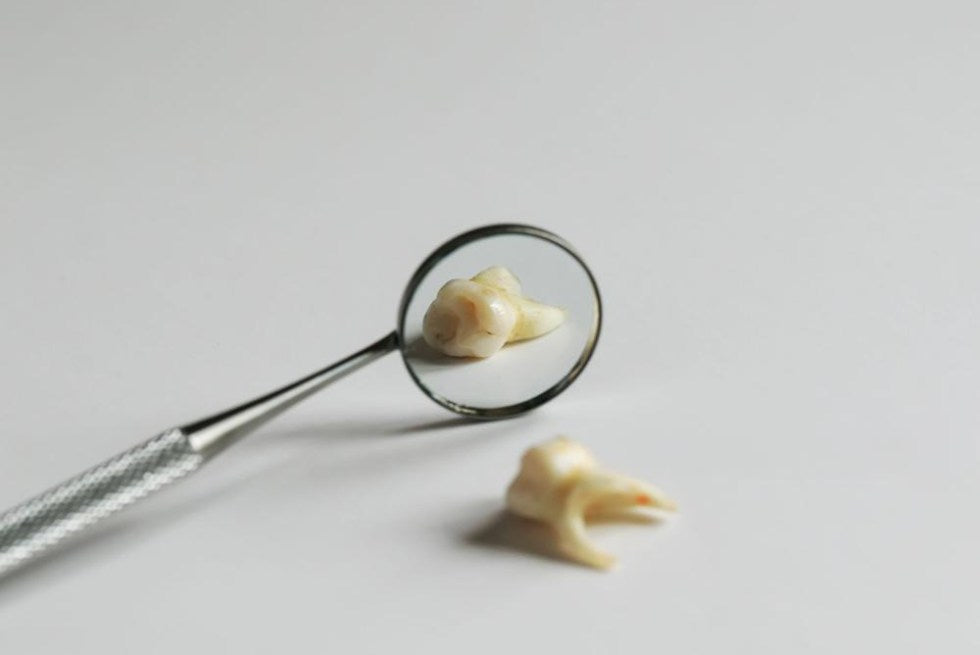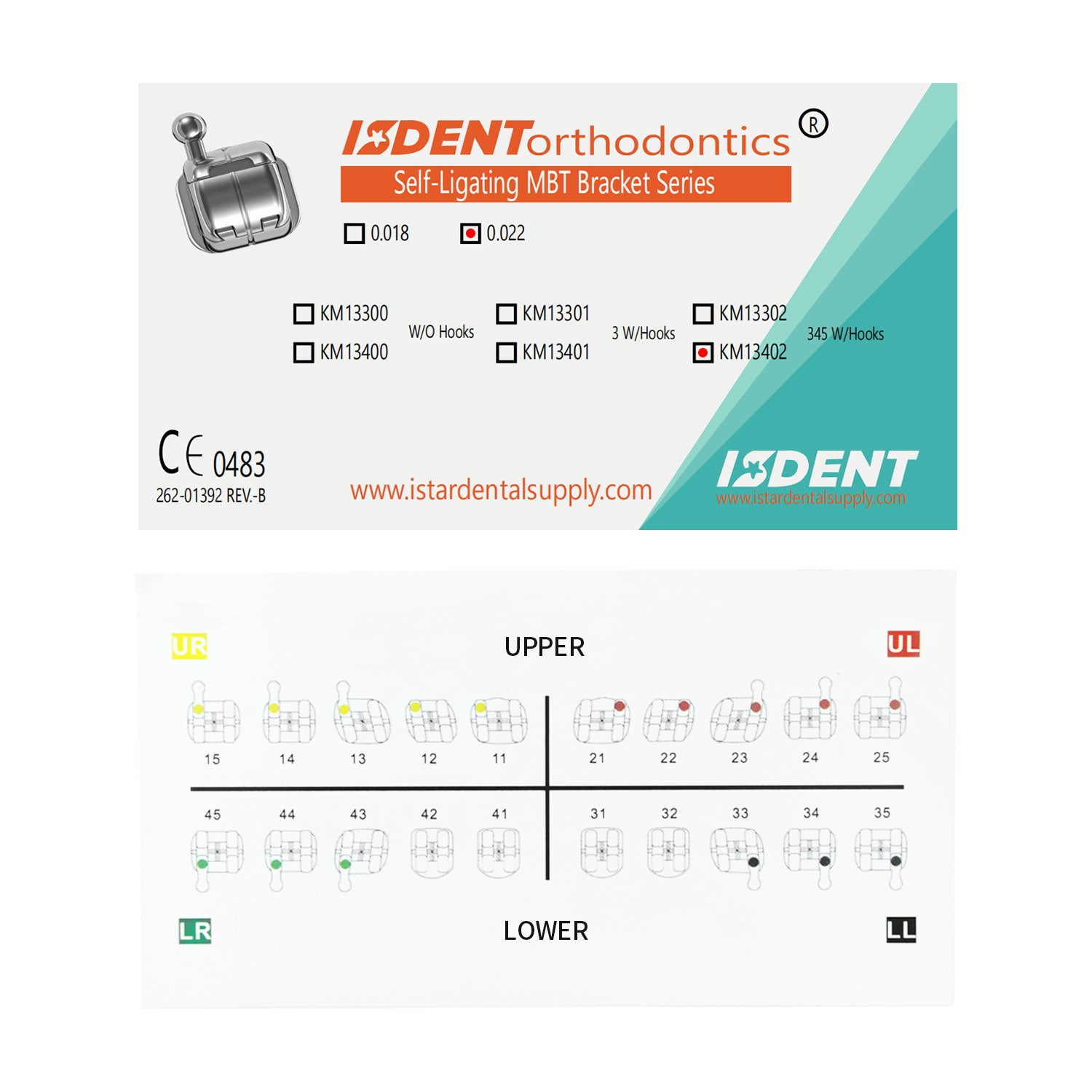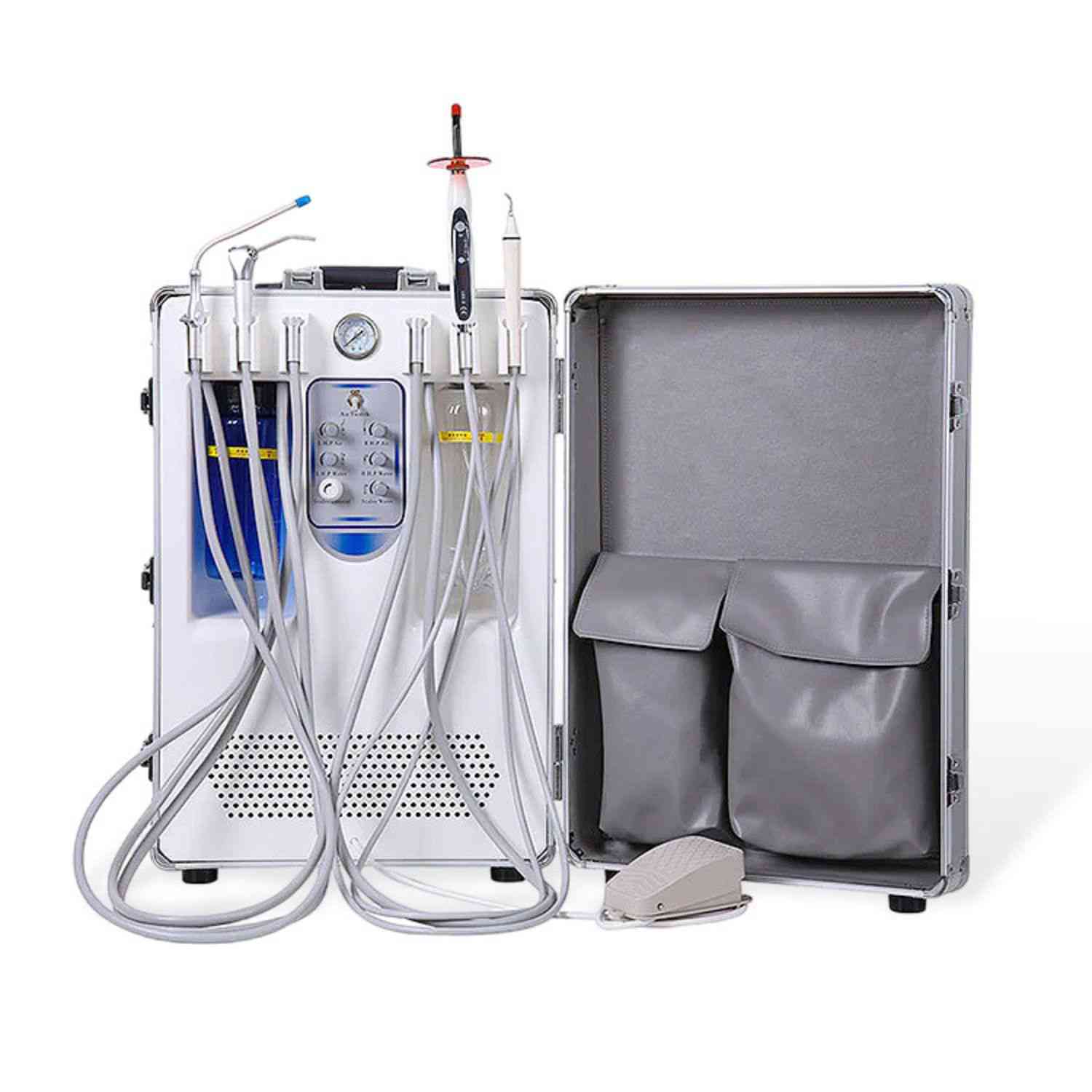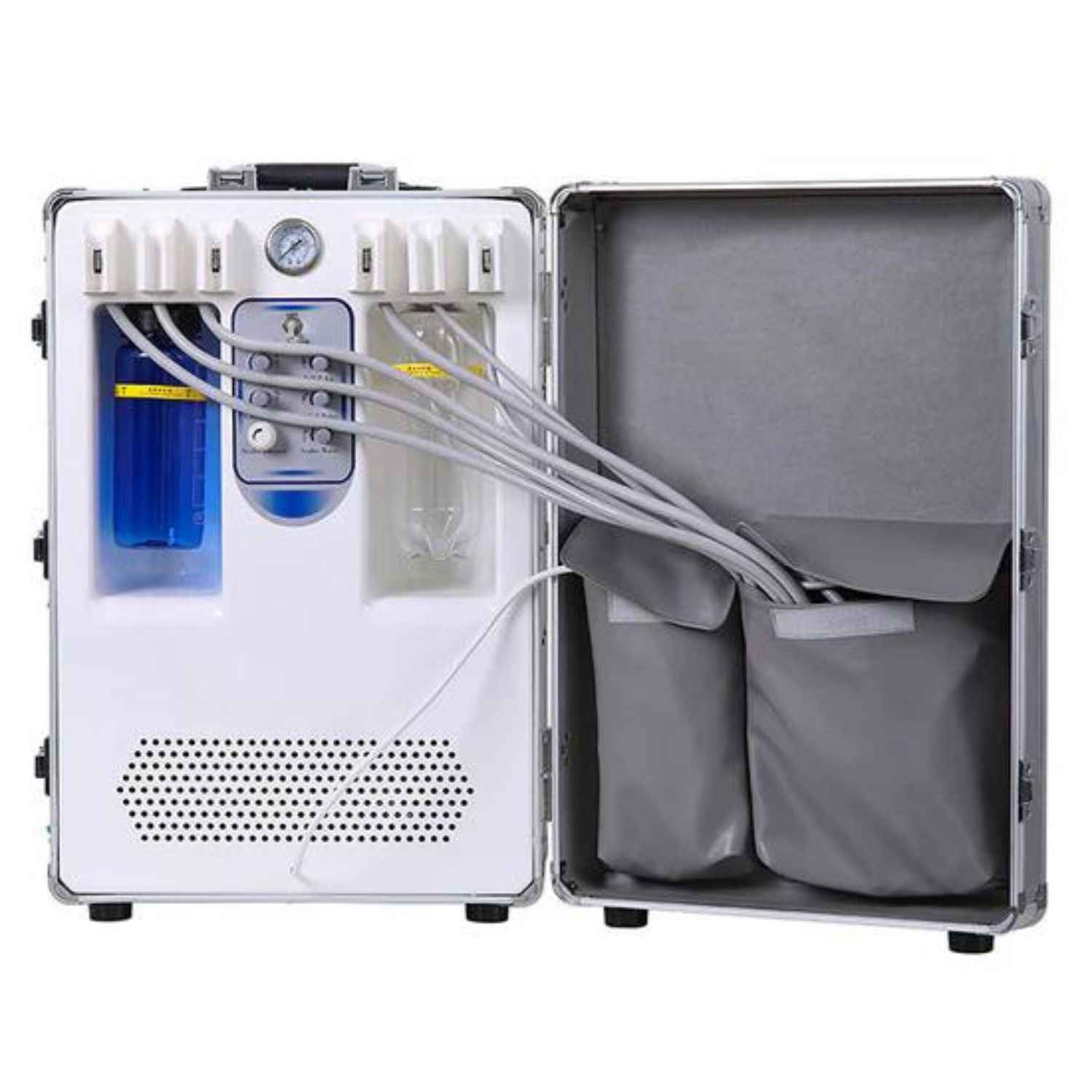What Are Wisdom Teeth: Everything You Need to Know
Are you feeling pain at the back of your mouth? It might be your wisdom teeth. These teeth can cause trouble for many people. In this guide, we'll explain what wisdom teeth are, why they sometimes need to be removed, and what to expect if you need them taken out.
What Are Wisdom Teeth?
Wisdom teeth are the third molars that grow at the very back of your mouth. They usually come in when you're between 17 and 25 years old. That's why they're called "wisdom" teeth - because they appear when you're older and supposedly wiser!
Most people get four wisdom teeth - one in each corner of the mouth. These teeth were helpful for our ancestors who ate tough, hard foods that wore down their teeth. Back then, people had bigger jaws with more room for all their teeth.
Today, our diets are softer, and our jaws are smaller. This means many people don't have enough space for wisdom teeth to grow properly. When they try to come in anyway, they can cause problems.
Wisdom teeth look different from your other teeth. They often have:
- Smaller size
- Irregular shape
- Multiple roots
- Harder time breaking through the gums
Why Do Some People Need Their Wisdom Teeth Removed?
Did you know that 85% of people will need their wisdom teeth removed at some point? That's a lot of people! Here's why removal is often needed:
Common Problems With Wisdom Teeth
-
Impaction: This happens when there isn't enough room for the tooth to come through the gum. About 1 in 3 people have at least one impacted wisdom tooth. When a tooth is impacted, it might be:
- Partially stuck under the gum
- Completely hidden under the gum
- Growing at an odd angle
-
Crowding: Wisdom teeth can push your other teeth out of place, making them crooked. This can undo years of orthodontic treatment that gave you a straight smile.
-
Infections: When a wisdom tooth only partly breaks through the gum, bacteria can get trapped and cause painful infections called pericoronitis.
-
Damage to nearby teeth: Wisdom teeth can push against your second molars, damaging them or making them more likely to get cavities.
-
Cysts or tumors: If left alone, impacted wisdom teeth can sometimes form cysts (fluid-filled sacs) that can damage your jawbone and nearby teeth.
Risks of Ignoring Problem Wisdom Teeth
If you ignore wisdom teeth problems, you might face:
- Ongoing pain
- Infections that spread to your face and neck
- Damage to healthy teeth
- Gum disease
- Tooth decay that's hard to treat
Important fact: 35% of untreated impacted wisdom teeth will develop problems like cysts or decay over time. That's why many dentists recommend removing them before they cause trouble.
When Wisdom Teeth Removal Is NOT Needed
Not everyone needs their wisdom teeth taken out! Your wisdom teeth can stay if:
- They have enough room to fully come in
- They're properly aligned so you can chew with them
- They're healthy with no signs of decay
- Your gums around them are healthy with no disease
- You can clean them properly with brushing and flossing
Your dentist will check your wisdom teeth with regular X-rays to make sure they're developing correctly. Even if your wisdom teeth aren't causing problems now, your dentist will watch for:
- Pain or swelling at the back of your mouth
- Infection or gum disease
- Damage to nearby teeth
- Development of cysts
- Tooth decay in partially erupted wisdom teeth
It's interesting to note that 30–60% of impacted wisdom teeth show no symptoms but may still be causing damage you can't feel yet.
The Wisdom Teeth Removal Process: What to Expect
If your dentist recommends removing your wisdom teeth, here's what will happen:
Types of Extraction
There are two main ways wisdom teeth are removed:
-
Simple extraction: If your wisdom tooth has fully erupted (come all the way in), your dentist may be able to remove it just like any other tooth. They'll numb the area and use dental tools to loosen and pull out the tooth.
-
Surgical extraction: This is needed for impacted wisdom teeth. The oral surgeon will:
- Give you anesthesia so you won't feel pain
- Make a small cut in your gum
- Remove any bone covering the tooth
- Sometimes cut the tooth into pieces to remove it
- Close the area with stitches if needed
Did you know that over 10 million wisdom teeth are extracted annually in the United States? It's one of the most common surgical procedures!
Recovery Timeline
After your wisdom teeth are removed, here's what to expect:
First 24 Hours:
- Some bleeding (use gauze pads to help stop it)
- Swelling in your cheeks and face
- Discomfort and pain (take pain medicine as directed)
- Limited opening of your mouth
Days 2-3:
- Swelling usually peaks
- Bruising might appear
- Pain starts to get better
Days 4-7:
- Swelling goes down
- Jaw stiffness improves
- You can start eating more normal foods
Weeks 1-2:
- Stitches dissolve or are removed
- Most pain and swelling is gone
- The extraction sites continue to heal
Complete Healing: 3-4 weeks
- Soft tissue is mostly healed
- Bone continues to reshape over several months
Tips to Avoid Complications
To heal faster and avoid problems:
- Follow your dentist's instructions carefully
- Don't smoke or use straws (can cause dry socket)
- Eat soft foods for a few days
- Gently rinse with salt water after 24 hours
- Take any prescribed antibiotics completely
- Keep your mouth clean but avoid brushing the extraction sites at first
Wisdom Teeth FAQs
Here are answers to common questions about wisdom teeth:
Do all wisdom teeth need to be removed?
No, not everyone needs their wisdom teeth removed. It depends on:
- If there's enough room in your mouth
- If they're coming in straight
- If they're causing problems
- If you can clean them properly
About 15% of people can keep their wisdom teeth without problems.
Is wisdom tooth extraction painful?
During the procedure, you shouldn't feel pain because you'll receive anesthesia. After the procedure, most people have some pain and swelling, but it can be managed with medicine your dentist prescribes or recommends.
What if I don't get my wisdom teeth removed?
If your dentist recommends removal but you skip it, you might face:
- Crowding of other teeth
- Damage to adjacent teeth
- Increased risk of decay and gum disease
- Possible cyst or tumor development
- More difficult and painful removal later
Remember, 35% of untreated impacted wisdom teeth develop complications over time.
Can wisdom teeth grow back after removal?
No, wisdom teeth cannot grow back after being fully removed. Each person only gets one set of adult molars, including wisdom teeth. Once they're gone, they're gone for good.
At what age should wisdom teeth be checked?
Dentists typically start monitoring wisdom teeth development in the mid-teens (around 16-18). Regular dental checkups with X-rays help track how these teeth are developing.
Common Wisdom Teeth Situations
| Situation | How Common | Typical Treatment |
|---|---|---|
| Fully impacted | 1 in 3 people | Surgical removal recommended |
| Partially erupted | Very common | Often removed to prevent infection |
| All four wisdom teeth present | About 85% of people | Evaluation needed for each tooth |
| No wisdom teeth at all | Rare (about 2-10% of people) | No treatment needed |
| Asymptomatic impaction | 30-60% of impacted teeth | Often still recommended for removal |
When to Call Your Dentist
Contact your dentist right away if you notice:
- Severe pain not controlled by pain medicine
- Excessive bleeding that won't stop
- Swelling that gets worse after 2-3 days
- Fever or signs of infection
- Bad taste or smell from the extraction site
- Numbness that doesn't go away
Conclusion
Wisdom teeth are the third molars that typically appear in your late teens or early twenties. While some people have no problems with these teeth, 85% of people will need them removed due to issues like impaction, crowding, or infection risk.
Regular dental checkups are important to monitor your wisdom teeth. If removal is needed, the procedure is common and safe, with most people recovering fully within a few weeks.
Whether your wisdom teeth are causing problems or not, working with your dentist to monitor them is the best way to maintain your overall oral health and prevent future problems.
Remember to discuss any concerns or questions about your wisdom teeth with your dentist. They can provide personalized advice based on your specific situation.









